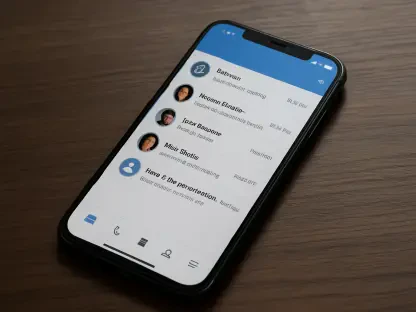Grinnell College offers on-campus employment opportunities that go beyond financial compensation, providing practical experience and professional development. This article examines two standout programs: the User-Access Expert Leaders in the Office of Disability Resources and the Vivero Digital Fellows in Burling Library’s Digital Studio. Both programs contribute significantly to students’ readiness for life after graduation by fostering essential professional skills and enhancing campus inclusivity.
Exploring On-Campus Employment
Grinnell College’s on-campus jobs are designed to provide more than just financial benefits. They are structured to offer students real-world skills and professional competencies that will serve them well beyond their college years. These roles cultivate a sense of responsibility and mission towards enhancing the campus environment. Students participating in these programs do not merely engage in routine tasks; they are involved in meaningful work that can significantly impact both their personal development and the college community.
The holistic approach taken by Grinnell ensures that students are not only gaining immediate job experience but also developing a versatile skill set that is applicable in diverse professional settings. These on-campus roles are carefully constructed to nurture essential skills such as teamwork, critical thinking, and problem-solving. Students emerge more confident and competent, ready to tackle the professional challenges that lie ahead. Moreover, the college’s inclusive work environment fosters a collaborative spirit, allowing students to learn from one another and gain different perspectives.
User-Access Expert Leaders Program
Initiated in 2017, the User-Access Expert Leaders Program at Grinnell College aims to ensure that all campus spaces go beyond basic accessibility standards. This program trains students to evaluate the physical campus environment for inclusivity, ensuring that it accommodates everyone regardless of their physical abilities. It is an important step towards creating a genuinely inclusive community where all members can navigate and utilize the campus without barriers.
Detailed Training and Tools
As part of the User-Access Expert Leaders Program, students receive detailed training in assessing various accessibility features. They are equipped with specialized tools such as tape measures, door pressure gauges, light meters, and decibel meters, which are critical for conducting thorough audits. These tools enable the students to measure and evaluate different aspects of accessibility, including the ease of door operations, proper lighting, and noise levels. This rigorous training ensures that students can carry out comprehensive evaluations of campus facilities, identifying areas that need improvement and recommending effective solutions.
The training also includes developing soft skills such as effective communication and problem-solving, which are essential for gathering and analyzing feedback. Students are taught to ask non-leading questions, which helps in collecting accurate and comprehensive feedback about accessibility issues. This methodology ensures that the data they collect is reliable and can inform actionable changes. Overall, the program not only provides technical training but also hones the students’ ability to think critically about creating inclusive environments.
Auditing and Feedback Collection
Students in the User-Access Expert Leaders Program are responsible for auditing a wide range of campus environments, from classrooms and libraries to recreational facilities and dormitories. They evaluate essential features such as lighting, ramps, elevator access, and acoustics, ensuring all these elements meet or exceed accessibility standards. The audits are thorough and detailed, often revealing insights that are overlooked by conventional accessibility assessments. This diligence helps in creating a more inclusive campus, benefiting everyone, including those with disabilities.
In addition to technical audits, students are trained to collect qualitative feedback from campus users. They employ structured interview techniques that involve asking non-leading questions, allowing them to gather genuine and comprehensive insights. This feedback collection process is crucial as it provides invaluable data that complements the technical audits. Students learn to synthesize this information to propose realistic and impactful enhancements to campus facilities. By engaging in this process, students not only contribute to a more accessible campus but also develop critical analytical and communication skills that are highly valued in professional settings.
Vivero Digital Fellows Program
Founded in 2017 through the Grinnell Innovation Fund, the Vivero Digital Fellows Program is another exemplary initiative that supports digital humanities projects. This program combines structured training sessions with hands-on project work, preparing students for careers in various digital fields. The Vivero Digital Fellows Program equips students with practical and transferable digital skills, positioning them favorably for the job market and further academic pursuits.
Structured Training
During their first semester, Vivero Digital Fellows undergo extensive training on widely used digital tools and platforms such as WordPress, Excel, and other relevant software. These training sessions are designed to build a strong foundation in digital skills that are essential for their project work and future professional endeavors. Students learn how to navigate these tools efficiently and effectively, enabling them to handle a wide range of digital tasks. The training also covers best practices in digital project management, ensuring that fellows are well-prepared to tackle any challenges they may encounter during their project work.
The structured training is complemented by continuous mentoring from faculty and staff, who provide guidance and support throughout the program. This mentorship is invaluable as it helps fellows apply their newly acquired skills to real-world projects. The training period also includes collaborative workshops where fellows can exchange ideas and learn from their peers. This collaborative approach not only enhances the learning experience but also fosters a sense of community among the fellows, encouraging them to support each other’s growth and development.
Project Work and Peer Mentoring
After completing their initial training, Vivero Digital Fellows engage in hands-on project work alongside faculty and staff. These projects span various areas including website design, data management, and digital content creation, providing fellows with practical experience that is directly applicable to their future careers. Students have the opportunity to work on innovative digital humanities projects, which often involve interdisciplinary collaboration and cutting-edge technology. This project work helps fellows develop a robust portfolio, showcasing their skills and accomplishments to potential employers or graduate programs.
In addition to their project responsibilities, Vivero Digital Fellows also participate in peer mentoring, where they provide guidance and support to other students. This aspect of the program promotes a collaborative learning environment, enabling fellows to refine their teaching and leadership skills. Peer mentoring allows fellows to share their knowledge and experiences, creating a mutually beneficial dynamic where both mentors and mentees can learn and grow. The experience of mentoring not only enhances the fellows’ interpersonal skills but also strengthens the overall sense of community within the program.
Professional and Personal Growth
Both the User-Access Expert Leaders Program and the Vivero Digital Fellows Program are designed to serve as stepping stones for future careers. Participants in these programs build comprehensive portfolios and gain hands-on experience, often applying their new skills to personal projects. These roles significantly enhance employability by providing students with practical experience and professional development opportunities that are highly valued in the job market.
The structured training and real-world projects offered by these programs help students develop a versatile skill set that is applicable to a variety of professional fields. Participants learn to navigate complex challenges, work collaboratively, and think critically, all of which are essential skills in today’s competitive job market. Moreover, the experience gained through these programs often inspires students to pursue further education or careers in related fields, demonstrating the long-term impact of these initiatives.
In addition to professional development, these programs contribute to the personal growth of the students involved. Participants gain a deeper understanding of the importance of accessibility and inclusivity, fostering a sense of empathy and social responsibility. The collaborative nature of these roles also encourages students to build strong relationships and support networks, enhancing their overall college experience. Ultimately, both the User-Access Expert Leaders Program and the Vivero Digital Fellows Program prepare students for diverse professional landscapes and empower them to make meaningful contributions to society.
Overarching Themes and Benefits
The common thread running through both the User-Access Expert Leaders Program and the Vivero Digital Fellows Program is their emphasis on inclusivity and practical skill development. These programs highlight the importance of creating an accessible and equitable campus environment, fostering a sense of community and belonging for all students. By training students to evaluate and improve campus facilities, as well as equipping them with digital skills, these programs contribute significantly to the overall enhancement of the campus experience.
Collaborative learning is another key theme in both programs. Students are encouraged to work together, share knowledge, and support one another’s growth. This collaborative approach not only enhances the learning experience but also builds a strong sense of camaraderie among the participants. The peer mentoring aspect of the Vivero Digital Fellows Program, in particular, exemplifies the benefits of collaborative learning, as fellows develop their leadership skills while fostering a supportive learning environment for their peers.
Practical skill development is a cornerstone of both programs. Whether it’s through conducting accessibility audits or working on digital humanities projects, students gain hands-on experience that is directly applicable in professional settings. These roles provide students with the opportunity to apply their theoretical knowledge in real-world contexts, enhancing their confidence and competence. The skills acquired through these programs are transferable across various industries, thereby broadening the students’ career prospects and making them more competitive in the job market.
Continuing the Journey
Grinnell College provides on-campus employment opportunities that extend beyond financial compensation, offering practical experience and professional development. This article delves into two exceptional programs: the User-Access Expert Leaders in the Office of Disability Resources and the Vivero Digital Fellows in Burling Library’s Digital Studio. Both initiatives play a pivotal role in equipping students for their post-graduation endeavors by nurturing vital professional skills and promoting inclusivity on campus.
The User-Access Expert Leaders program prepares students to support those with disabilities, fostering an inclusive environment while also grooming participants in leadership and advocacy skills. Meanwhile, the Vivero Digital Fellows program equips students with cutting-edge digital skills, focusing on tech-based projects that boost their adaptability in the modern workforce. These programs not only strengthen the sense of community at Grinnell but also ensure students leave with applicable skills and a readiness to navigate the challenges of the professional world.









